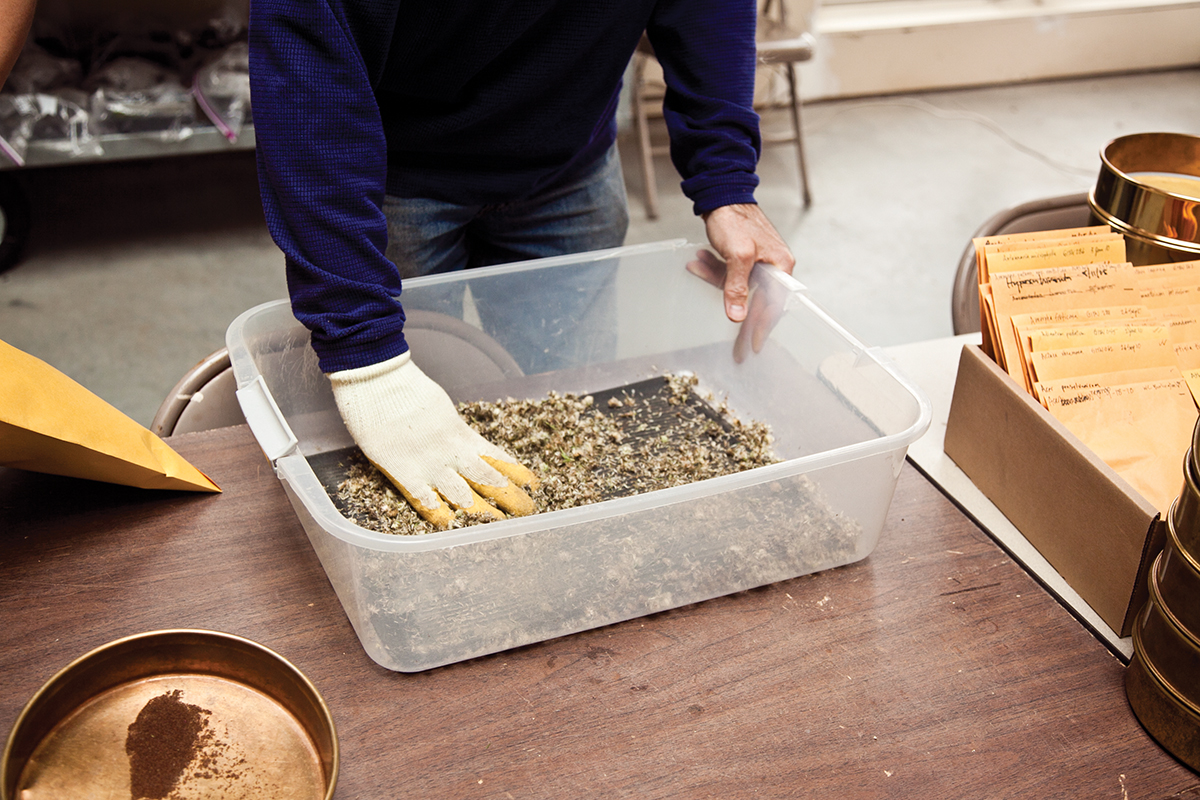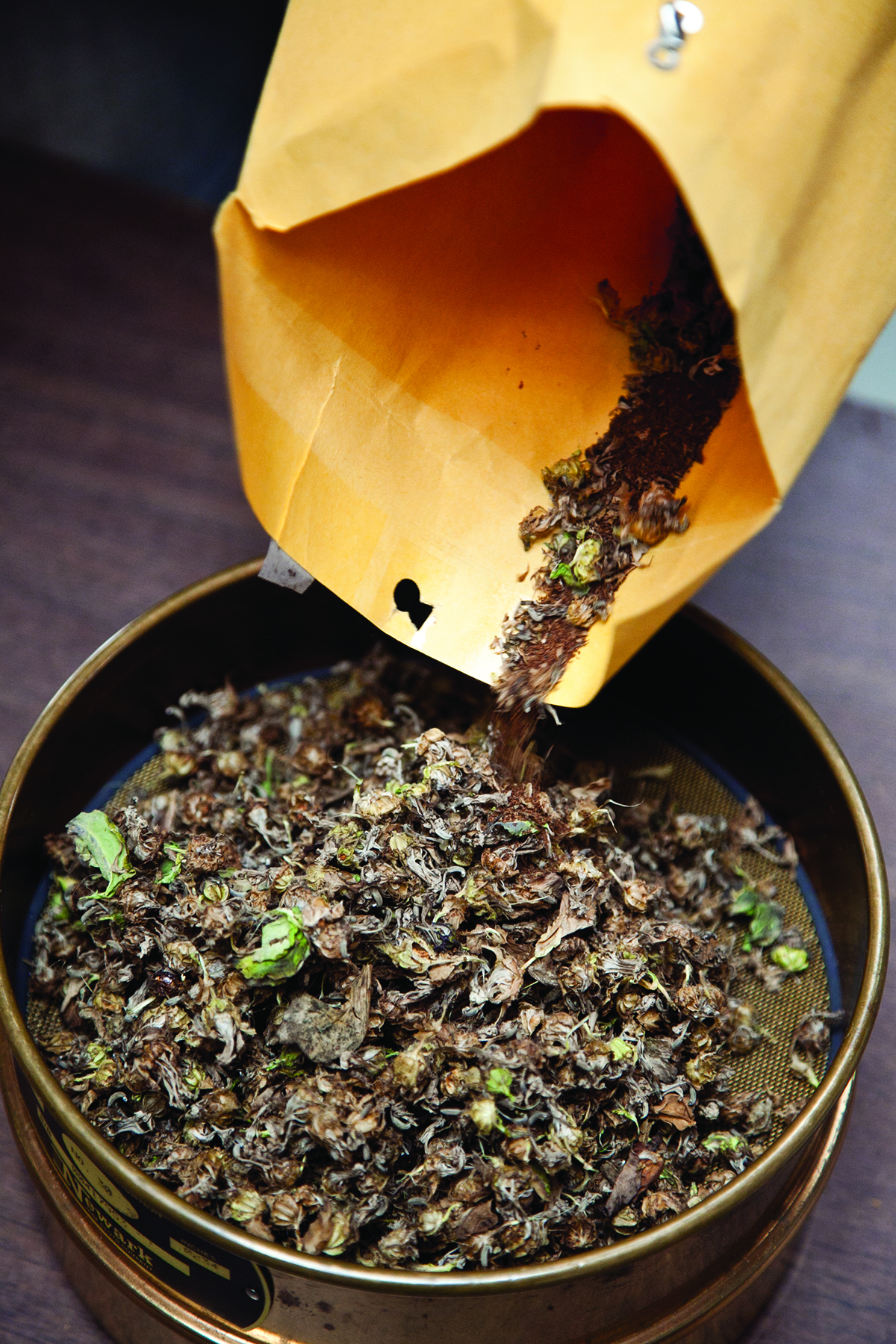The Making of a Seed Bank

Photo courtesy of New England Wild Flower Society
In a lab in Whately, Massachusetts, dried seeds are transferred to a freezer.
They’re placed in a temperature-controlled, humidity-controlled vault known as the Seed Ark.
An initiative of the New England Wild Flower Society, the Seed Ark is meant to house the preserved seeds from all 387 of New England’s threatened plant species. By 2020, the society hopes to have all the species in the Ark, or seed bank, including ten of them that can’t be found anywhere else in the world.
“We’re losing native plants at a fairly rapid rate,” says Debbi Edelstein, Executive Director of the New England Wild Flower Society.
Climate change trends, the spread of invasive species, rapid land development, the use of pesticides, and a myriad of other effects working together are to blame. Only 69 percent of New England’s plants are native, meaning the non-native ones are carving out an increasingly larger place in the region.
By preserving the seeds of New England’s rare plants in a seed bank, the society can singlehandedly preserve the region’s range of genetic diversity. The bank, as Edelstein describes, acts as “an insurance policy against disaster.”
A network of 700 trained volunteers and professional botanists gather the specimens for the Ark.
“You go at the time when the seed is ripe, collect it, put it in a little plastic bag,” Edelstein explains, “Bring it back, clean it under a microscope with tweezers, and there’s a process for freezing it and drying it so that it’s at low humidity.”
And then the seeds stay frozen.
“Seeds that are properly stored can last centuries,” she says. “That’s the beauty of this project. That’s why there are seed banks. We’re a part of a worldwide seed baking effort.”
The Wild Flower Society is a partner in the Convention on Biological Diversity, a global mission which seeks to halt the continuing loss of plant diversity. The society’s efforts were jump started with a recent $500,000 grant from the Hope Goddard Iselin Foundation. To be disbursed over the next five years, the grant will aid in New England’s seed banking efforts. But the Wild Flower Society is looking for $5 million to save them all.
Edelstein has her sights on the end goal of the Convention on Biological Diversity.
“Let’s just get this done for the whole country,” says Edelstein. “One hundred million dollars gets it done for the whole country. At the government scale, or large foundation scale, $100 million isn’t that much money. To us, it’s astonishing, but over a ten year period, that’s what it would take.”

Photo courtesy of New England Wild Flower Society


